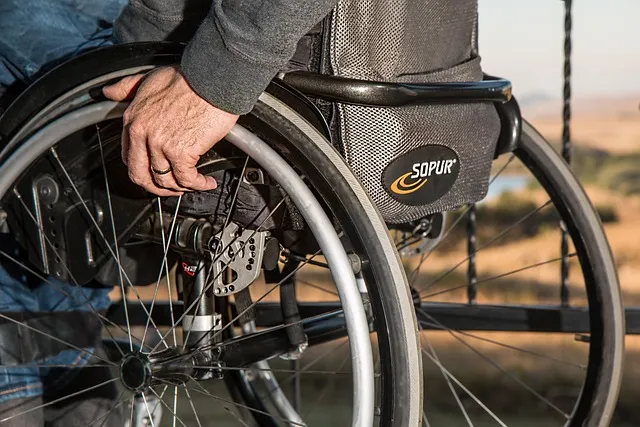TL;DR:
Kaiser Permanente offers EMDR therapy as a revolutionary treatment for Post-Traumatic Stress Disorder (PTSD), recognized for its effectiveness in healing trauma. This approach combines focus on traumatic memories with bilateral stimulation, facilitating the brain's natural healing process and reducing emotional intensity. Kaiser provides comprehensive resources, including specialized techniques and community support, enhancing recovery for adolescents and adults experiencing PTSD. Integrated into primary care settings, EMDR therapy at Kaiser aims to improve well-being, reduce symptoms like flashbacks and nightmares, and enable patients to rebuild their lives.
“Discover a transformative approach to healing post-traumatic stress disorder (PTSD) with EMDR therapy at Kaiser Permanente. This groundbreaking treatment has shown remarkable effectiveness in addressing deep trauma. Our article delves into ‘Understanding EMDR Therapy’, exploring its science and benefits specifically within the context of Kaiser’s specialized care. Learn how this method, backed by research, can help individuals reclaim their lives after traumatic events. From the basics to real-life success stories, we guide you through the entire process.”
- Understanding EMDR Therapy: A Brief Overview
- Kaiser Permanente's Approach to PTSD Treatment
- How EMDR Works: The Science Behind the Therapy
- Benefits of EMDR for Post-Traumatic Stress Disorder
- The Process: What to Expect During EMDR Sessions at Kaiser Permanente
- Success Stories and Real-Life Examples
Understanding EMDR Therapy: A Brief Overview

EMDR therapy, or Eye Movement Desensitization and Reprocessing, is a groundbreaking approach to healing trauma, designed to help individuals process and overcome distressing memories. This innovative treatment has gained recognition within Kaiser Permanente for its effectiveness in addressing Post-Traumatic Stress Disorder (PTSD). By encouraging patients to focus on traumatic memories while simultaneously engaging in bilateral stimulation—such as side-to-side eye movements or tactile taps—EMDR facilitates the brain’s natural healing process, allowing individuals to reprocess traumatic events and reduce their emotional impact.
This therapy method has proven particularly beneficial for adolescents within Kaiser care who have experienced trauma. Patient stories of EMDR success at Kaiser highlight its ability to alleviate symptoms and improve overall well-being. Moreover, community resources for Kaiser EMDR patients are readily available, offering support both during and after treatment. Through these comprehensive services, Kaiser Permanente continues to champion mental health awareness and provide cutting-edge solutions like EMDR therapy to help individuals reclaim their lives from the burdens of trauma.
Kaiser Permanente's Approach to PTSD Treatment

Kaiser Permanente, a renowned healthcare organization, offers comprehensive mental health services, including innovative approaches to treating Post-Traumatic Stress Disorder (PTSD). Their focus on EMDR (Eye Movement Desensitization and Reprocessing) therapy is noteworthy. This evidence-based method has proven effective in helping individuals process traumatic memories and reduce symptoms of PTSD. EMDR therapy Kaiser Permanente San Francisco incorporates specialized techniques to target the unique needs of each patient, ensuring personalized care.
The Kaiser approach to treating co-occurring disorders, such as depression or anxiety alongside PTSD, is holistic. They recognize that these conditions often intertwine and require a tailored treatment plan. By integrating EMDR with other therapeutic modalities, Kaiser Permanente San Francisco aims to provide lasting relief. Additionally, they offer community resources for EMDR patients, fostering support networks and promoting recovery through various initiatives.
How EMDR Works: The Science Behind the Therapy

EMDR (Eye Movement Desensitization and Reprocessing) therapy is a groundbreaking approach to treating post-traumatic stress disorder (PTSD). This innovative method helps individuals process and overcome traumatic memories, offering a promising avenue for those seeking relief from PTSD symptoms. The science behind EMDR involves stimulating both the left and right hemispheres of the brain simultaneously while the patient focuses on traumatic memories. This bilateral stimulation is believed to facilitate the processing of distressing events, allowing individuals to re-experience these memories in a safe environment and reduce their impact.
Through this process, patients can access and reprocess stored memories, emotions, and associated bodily sensations related to trauma. EMDR therapy encourages the brain’s natural healing ability, helping individuals integrate traumatic experiences into their consciousness in a healthy way. By integrating EMDR into Kaiser Permanente’s care model, patients have access to advanced trauma treatments via the Kaiser portal, potentially reducing waiting times compared to traditional therapies. Moreover, combining EMDR with mindfulness techniques can further enhance its effectiveness, providing comprehensive support for those navigating PTSD recovery.
Benefits of EMDR for Post-Traumatic Stress Disorder

End PTSD with EMDR Kaiser: Unlocking Healing Potential
EMDR therapy has emerged as a highly effective treatment for Post-Traumatic Stress Disorder (PTSD), and Kaiser Permanente recognizes its potential. Integrating EMDR into primary care settings, such as Kaiser, offers patients accessible and comprehensive care. This therapeutic approach facilitates the brain’s natural healing process by reprocessing traumatic memories, reducing their intense emotional impact. As a result, individuals can regain control over their lives, free from the constant relivings of traumatic events.
Through EMDR training programs tailored for Kaiser staff, healthcare professionals gain valuable skills to assist patients in navigating their PTSD. By combining EMDR with mindfulness techniques, Kaiser Permanente enhances its approach, enabling deeper healing and improved well-being for those affected by trauma. This integrated method aligns with Kaiser’s commitment to delivering innovative and effective care, ensuring that individuals experiencing PTSD receive the support they need to rebuild and recover.
The Process: What to Expect During EMDR Sessions at Kaiser Permanente

At Kaiser Permanente, EMDR (Eye Movement Desensitization and Reprocessing) therapy is administered by trained mental health professionals to help patients process traumatic memories effectively. During sessions, patients focus on a specific memory while engaging in bilateral stimulation, typically through side-to-side eye movements, taps, or tones. This process helps the brain reprocess traumatic events, reducing their emotional intensity over time.
Each EMDR session is tailored to the patient’s needs and can last up to 90 minutes. Patients are guided through a series of steps designed to desensitize them to distressing memories, change beliefs related to the trauma, and process associated emotions. The therapist will discuss goals for each session, ensuring patients understand the process and feel comfortable. While Kaiser covers EMDR therapy for eligible patients, waiting times can vary depending on the facility and current demand. As an alternative therapy, EMDR offers a promising approach for those looking to overcome PTSD symptoms in a structured yet flexible manner.
Success Stories and Real-Life Examples

Many individuals suffering from Post-Traumatic Stress Disorder (PTSD) find hope and healing through EMDR therapy, specifically when accessed through Kaiser Permanente’s healthcare network. Success stories abound of patients who once struggled with debilitating symptoms experiencing significant improvements in their quality of life. For example, a patient with complex PTSD stemming from childhood trauma may finally feel a sense of peace and clarity after completing EMDR sessions with a trained Kaiser specialist. These specialists are equipped with the latest research and best practices within the Kaiser system to ensure effective treatment.
Real-life transformations include reduced flashbacks, nightmares, and anxiety, allowing individuals to reengage in activities they once avoided. Finding a Kaiser EMDR specialist near you is now easier than ever, with many facilities offering this evidence-based therapy. While some patients may face initial EMDR waiting times within Kaiser facilities, the benefits often outweigh the delays. Through dedicated care and adherence to established EMDR best practices, Kaiser Permanente continues to empower individuals to overcome PTSD and rebuild their lives.
EMDR therapy, as implemented by Kaiser Permanente, offers a highly effective approach to ending PTSD. By combining elements of cognitive therapy with eye movement desensitization and reprocessing, this innovative method allows individuals to process traumatic memories safely and efficiently. With proven scientific backing and remarkable success stories, EMDR therapy at Kaiser Permanente provides hope and healing for those struggling with post-traumatic stress disorder. Embracing this advanced treatment can be a transformative step towards reclaiming one’s life after trauma.






